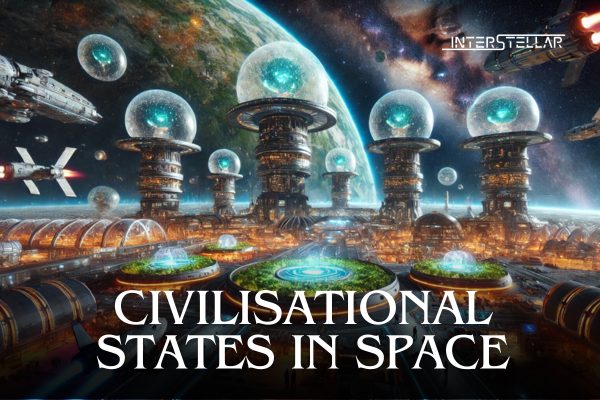The New Space Race: Civilisations Reach for the Stars
In June 2021, China and Russia unveiled an ambitious plan to construct a joint International Lunar Research Station, aiming to land humans on the moon by the mid-2030s in an attempt to form civilisational states. Just days before this announcement, Brazil became the twelfth nation to sign the U.S.-led Artemis Accords, a set of principles guiding the exploration and exploitation of lunar and other space resources. The Artemis Accords, inspired by the U.S. Artemis program, aim to return Americans to the moon by the mid-2020s—a timeline delayed by the COVID-19 pandemic. Meanwhile, nations like Japan, South Korea, Turkey, and the United Arab Emirates are planning lunar missions by the decade’s end, determined not to fall behind in this intensifying competition.
What began as a nostalgic nod to the Cold War-era space race has transformed into a multi-national, multi-billion-dollar endeavor with ambitions that extend beyond scientific discovery. Countries are vying to establish permanent human settlements on the moon, laying the groundwork for its systematic commercial exploitation. These efforts, however, are about more than technology or economics—they represent a profound civilisational contest to leave a lasting imprint on the cosmos.
Space as a Civilisational Imperative
Unlike the space race of the 20th century, today’s competition is not just geopolitical. It is driven by civilisational imperatives—the unique identities, cultural ambitions, and mythologies of the states involved. Space exploration reflects not only technological prowess but also the values and aspirations of the civilisations behind it. The great powers see outer space as a blank canvas, a tabula rasa where they can project their cultural, political, and civilisational grandeur.
Three interconnected trends underpin this civilisational imperative. First, modernity has evolved beyond its traditional Western roots. Once perceived as Western colonialism or a failed Marxist experiment, modernity today is infused with local values and civilisational pride. Cities across Eurasia and Africa boast advanced infrastructure and technology that reflect unique cultural identities.
Second, the concept of the civilisational state has emerged as a powerful force. Nations like China, India, Turkey, and even the United States embody the idea of historical continuity and cultural influence across vast geographies. Some states, like China and India, openly embrace this identity, while others, like the U.S., unconsciously act as civilisations.
Finally, space technologies have become more accessible. Once the exclusive domain of superpowers, advancements in microelectronics and declining launch costs have enabled many nations to develop space programs. Satellites now underpin critical global infrastructure, from communications to navigation and Earth observation, empowering even smaller countries to participate in space exploration.
Civilisational States and Space Exploration
While many nations operate satellites for practical purposes, only civilisational states use space exploration to assert their identity and ambition. Countries like Argentina, for example, use satellites for technical functions, but their space aspirations are modest. In contrast, civilisational states see space as a frontier for cultural and political expansion.
Human spaceflight programs are a hallmark of these ambitions. The United States, China, Russia, India, and even the UAE invest heavily in sending citizens into space. Iran, despite economic sanctions, pursues its own launch capabilities. These programs are not just about functionality—they embody vitality, grandeur, and the extension of civilisational values into the cosmos.
The moon and Mars are now the focal points of this competition. The United States and China, often with Russia as a partner, are racing to establish permanent bases on the lunar south pole, home to valuable ice deposits. These efforts are not merely about resource extraction; they symbolize a bid to create civilisational footholds beyond Earth.
The Risks of Civilisational Overreach
Space exploration is not without its critics. Detractors argue that the immense resources devoted to lunar bases and Mars missions could address pressing issues on Earth, such as climate change, poverty, and public health. These critiques are valid, but they miss the deeper motivations of civilisational states. For these nations, space exploration is not a policy choice—it is an imperative.
This imperative, however, carries risks. History has shown that civilisations often collapse under the weight of their own ambitions. The Soviet Union, a key player in the original space race, fell victim to overreach. Space remains an expensive and technically challenging domain, fraught with potential for geopolitical backlash, economic strain, and environmental harm. The same civilisational states that drive humanity’s reach for the stars may sow the seeds of their own decline.
A Paradox of Progress
Despite its risks, the civilisational imperative is essential for space exploration. Only states with grand ambitions and resources can justify the costs and challenges of establishing permanent lunar or Martian settlements. Figures like Elon Musk and Jeff Bezos, with their visions of space colonization, owe their pursuits to the framework of the American civilisational state.
Yet this paradox complicates utopian visions of space. While many hope that space exploration will transcend Earthly divisions, fostering cooperation and wonder, the reality is starkly different. Civilisational states bring their biases, rivalries, and ambitions into space, shaping humanity’s cosmic future in their own image.
The Future of Space Civilisations
The stakes in the modern space race are higher than ever. The civilisational state that secures dominance in space—through lunar bases, space-based infrastructure, and access to the solar system—will hold unparalleled economic and strategic power. With the space economy projected to reach $10 trillion by mid-century, the benefits of space dominance are immense.
As civilisational states compete for a foothold on the moon and beyond, the future of space exploration hangs in the balance. Will this race lead to humanity’s expansion into the cosmos, or will it repeat the cycles of overreach and collapse that have marked civilisations throughout history? One thing is certain: space is no longer just the final frontier—it is the stage for a new chapter in the story of human civilisation.


